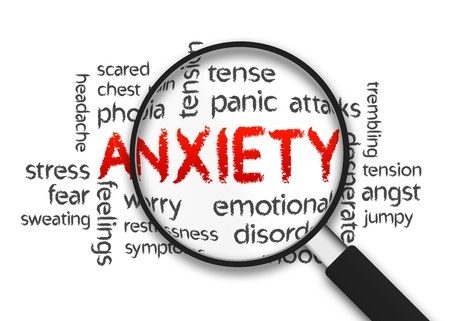5 Helpful Things To Do If Your Partner Suffers From Anxiety
First of all, I want to acknowledge that if your partner suffers from anxiety, you are probably suffering, too. When you’re tightly woven together as a couple, if something uncomfortable is happening within your partner, you will also be affected.
The good news is that because of this same interconnectedness, you are in a unique position to help regulate your partner’s anxious emotional state. And to help them move through an episode of anxiety more quickly and comfortably. Then you’ll both feel relieved. Below, I will share the 5 helpful things to do if your partner suffers from anxiety.

Remembering a few important points will help you cope better when your partner has an anxiety flare-up.
So, the next time your partner spins into anxiety, remind yourself that you are not the cause of his/her anxiety, and neither are they. Don’t take it personally and don’t judge or blame him/her.
Also, remind yourself that when your partner is under the influence of anxiety, he/she isn’t in a position to take care of you, and that it’s your turn to step into the role of being your partner’s caregiver until the anxiety passes.
Here are 5 helpful things to do if your partner suffers from anxiety:
1. Become an expert on how your partner does anxiety
That means you need to learn about anxiety in general and you need to understand how anxiety shows up in your partner specifically.
What does your partner feel when she is anxious? Where does your partner feel it in his body? What triggers her anxiety? How does your partner’s face change when he/she is anxious? What specific symptoms of anxiety is your partner prone to experience?
Part of what compounds anxiety for many people is the feeling that nobody understands, and that they are, therefore, all alone.
By becoming an expert on how your partner experiences anxiety, both mentally and physically, your partner will know that he is not alone, and that you are there to quickly help him feel calm, safe and secure.
2. Identify how much physical closeness helps soothe your partner’s anxiety
More than likely, when your partner is having an anxiety attack, her irrational fears have thrown her into a state of perceived threat.
So, notice whether your partner feels more relief from threat when you move toward her or when you stay at a bit of a distance from her. Will he be more comforted if you gaze into his eyes and give him a big hug? Or will she feel soothed if you sit next to her on the couch and help her slow down her breathing?
If you aren’t sure whether your partner feels better if you move close or if you give them a bit of space, you can do a little experiment together. Just move in super close to your partner, and then ask your partner to position you in a way that is most comfortable to him/her.
Once you know how much closeness is ideal for your partner, you can do a better job of soothing her when she is anxious.
3. Listen, support, and relieve
At the first sign that your partner is having anxiety, reach out to him with the amount of physical closeness that you’ve determined is most soothing. Then invite him to talk about what he’s experiencing, thinking, and feeling.
Listen carefully without judging or belittling. Let your partner know that she is not alone, and that you’re there for her. Ask how you can help. Remember to keep your tone of voice even and sweet, because loud or clipped voice tones can actually trigger the sense of threat and increase anxiety.
After your partner has shared with you what he is anxious about, remind him that this is a temporary state. Then go over the list of things that helps him get through anxious situations.
If you don’t have a list yet, write down the things that most help your partner get through episodes of anxiety. Next time you’ll be prepared to remind her of the process when she needs it most.
The list might include:
- a long embrace
- talking it out
- intentionally taking several deep, slow breaths
- moving their body (like dancing or going for a walk)
- repeating a positive affirmation.
4. Create a shift
Once your partner has talked through his current anxiety, move into active interaction to help ignite a shift in his emotional state. Talking alone, does not usually bring about a significant shift.
Here are a few ideas that can quickly create a positive mental and physiological shift in your partner’s anxious state:
- use humor and laugh together
- play patty-cake or catch
- dance together
- go for a walk or run
- do synchronized deep breathing
- cook a meal
- look at your favorite pictures
- brush each other’s hair for 10 minutes
- talk in a funny accent
Get creative! You’ll be surprised at how well this will work.
5. Reflect on progress
You can help improve your partner’s overall relationship to anxiety by pointing out improvements and progress as they occur.
Improvements might include:
- shorter episodes of anxiety
- less severity of anxiety symptoms
- no longer getting anxious over certain past triggers
- hope and confidence around anxious situations
- meeting specific goals related to the things that provoke anxiety.
Any time you notice even the smallest improvement, be sure to amplify it by commenting on it in detail in a very positive and affirming way. This will reinforce and accelerate your partner’s progress.
By practicing these 5 helpful things to do if your partner suffers from anxiety, you will provide a safe place for your partner to heal more quickly and you will become a more secure, functioning couple.
In my 20+ years of doing couples counseling, I have discovered the path to relationship happiness and security. Please share your reactions, other tips to helping an anxious partner, and your personal experiences below.




